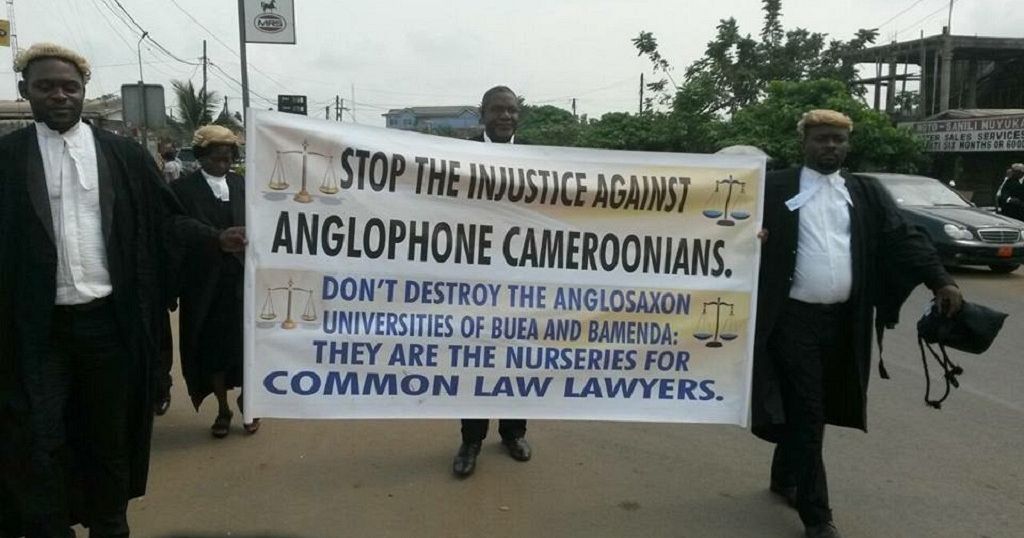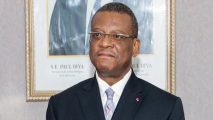15, October 2017
Trump failing to lead, sending matters to Congress to fix 0
US Senate Democratic leader, Chuck Schumer, has accused President Donald Trump of failing to lead the nation and instead sending matters to Congress.
In a tweet on Saturday, Sen. Schumer cited Trump’s handling of the Iran nuclear deal, health care and hurricane-ravaged Puerto Rico as examples of his failures in recent weeks. Trump on Friday announced he would not continue to certify the 2015 nuclear agreement with Iran known as the Joint Comprehensive Plan of Action. The US president kicked a decision over to Congress on whether to re-impose sanctions that were lifted as part of the nuclear accord.
Trump threatened to terminate the international accord if Congress and American allies failed to amend the agreement. The day before, Trump said he was cutting off subsidies to health insurance companies for low-income patients in the most dramatic action to weaken the Affordable Care Act, former President Barack Obama’s signature healthcare law.
“If the Democrats were smart, what they’d do is come and negotiate something where people could really get the kind of health care that they deserve,” Trump told reporters.

The White House is simply “asking the legislative branch to do its job,” Marc Short, Trump’s director of legislative affairs, told POLITICO. “We have great confidence in their ability to get things done.”
Analysts say Trump’s actions are meant to erase Obama’s achievements on domestic and foreign policy fronts.
“It’s not just a strategy,” said former House Speaker Newt Gingrich. “What Obama did is illegal and unconstitutional and these are areas that Congress should solve.”
“The president is returning power to the Congress — they should be happy,” he added.
Trump on Thursday also gave notice to Puerto Rico, warning that government assistance could not continue “forever.” He said it was up to Congress to decide how much federal money to appropriate to the island for its recovery.
By putting Congress in charge, experts say, Trump is taking a high-stakes gamble given the inability of the legislative branch to accomplish much in recent years.
Source: Presstv































19, October 2017
Damascus: Iran’s top military commander meets Syrian President Assad 0
The chairman of the Chiefs of Staff of the Iranian Armed Forces has met with Syrian President Bashar al-Assad in Damascus.
Major General Mohammad Baqeri met with President Assad on Thursday, congratulating him on the country’s recent achievements in its fight against terrorism and expressing hope that the phenomenon will soon be eliminated from the country.
Assad, for his part, expressed his gratitude to Leader of the Islamic Revolution Ayatollah Seyyed Ali Khamenei as well as the Iranian government and nation for their support for Syria in its campaign against terrorism.
Heading a high-ranking delegation, Major General Baqeri left Tehran for Damascus on Tuesday to meet with Syrian officials to discuss ways to boost defensive and military cooperation between Iran and Syria, among other issues.
He has met with his Syrian counterpart, General Ali Abdullah Ayoub, and is planned to sit down with Defense Minister Major General Fahd Jassem al-Freij as well.
Back in May, the top military brass of Iran and Syria held a meeting in Tehran and vowed to boost cooperation between their respective governments.
Iran has been providing military advisory support to Syria in their campaign against terrorism at the request of the government in Damascus.
Baqeri also paid a visit to Turkey in August. He met with the country’s top authorities, including President Erdogan, his Turkish counterpart, General Hulusi Akar, and Defense Minister Nurettin Canikli.
Culled from Presstv